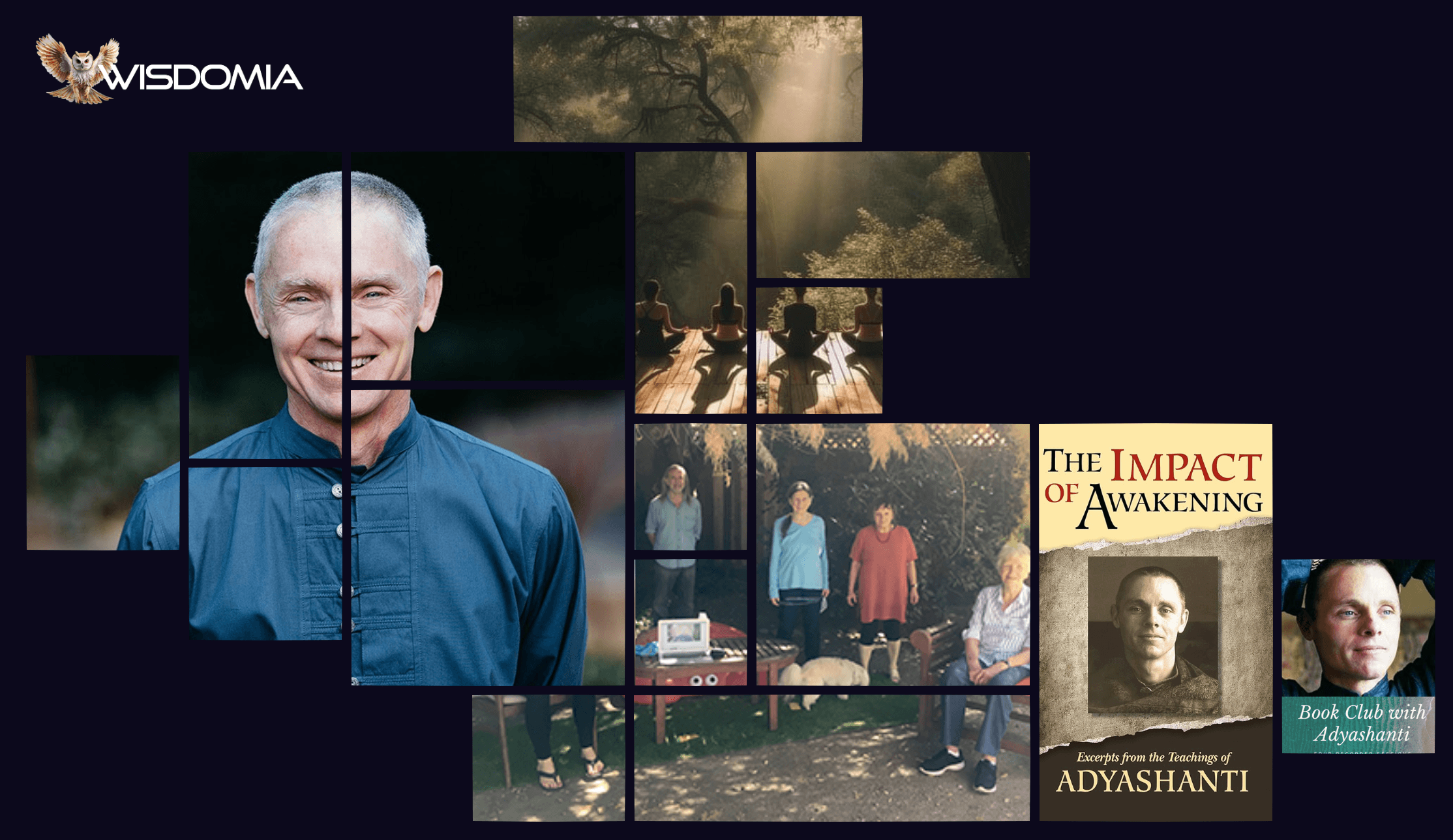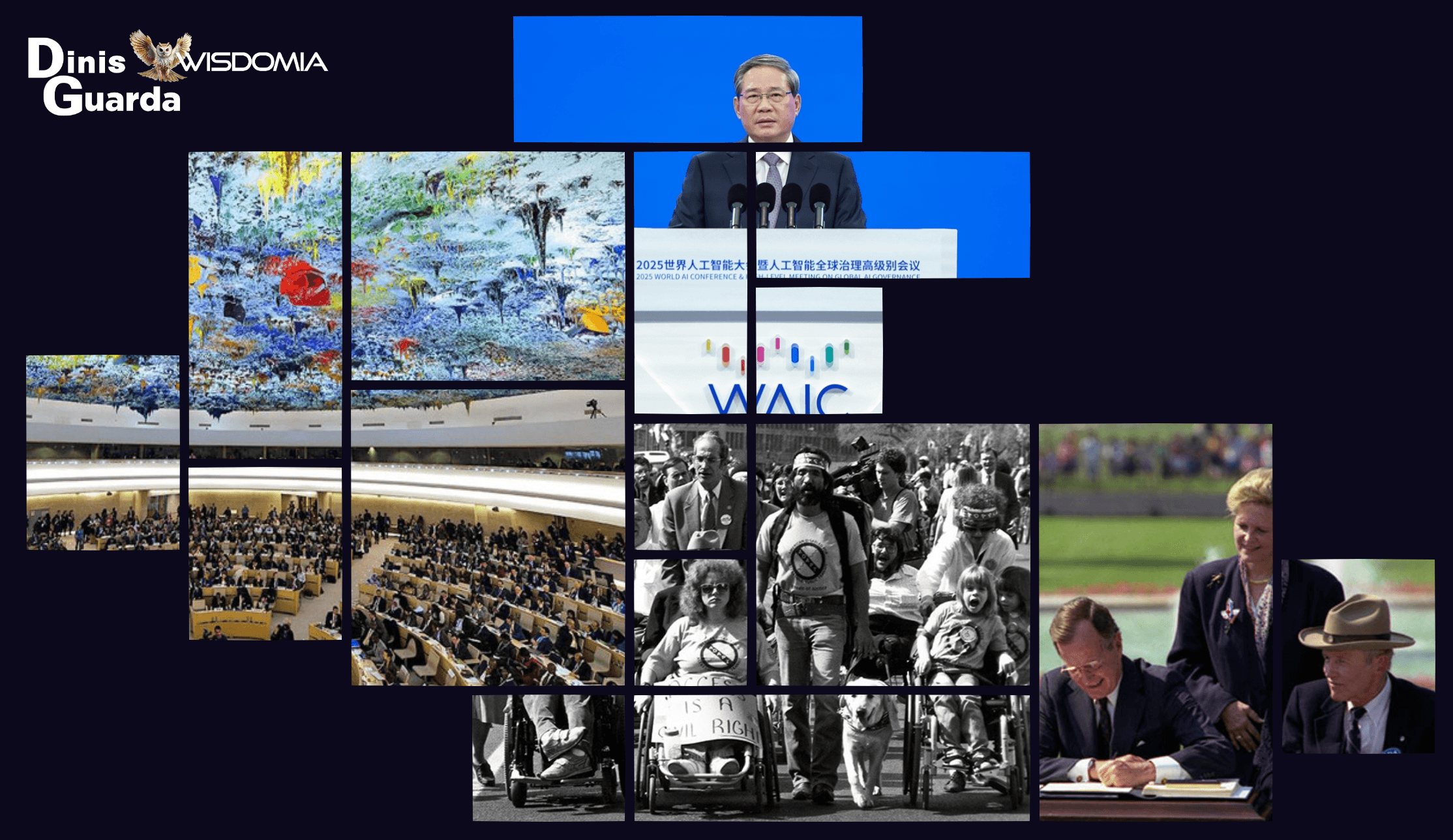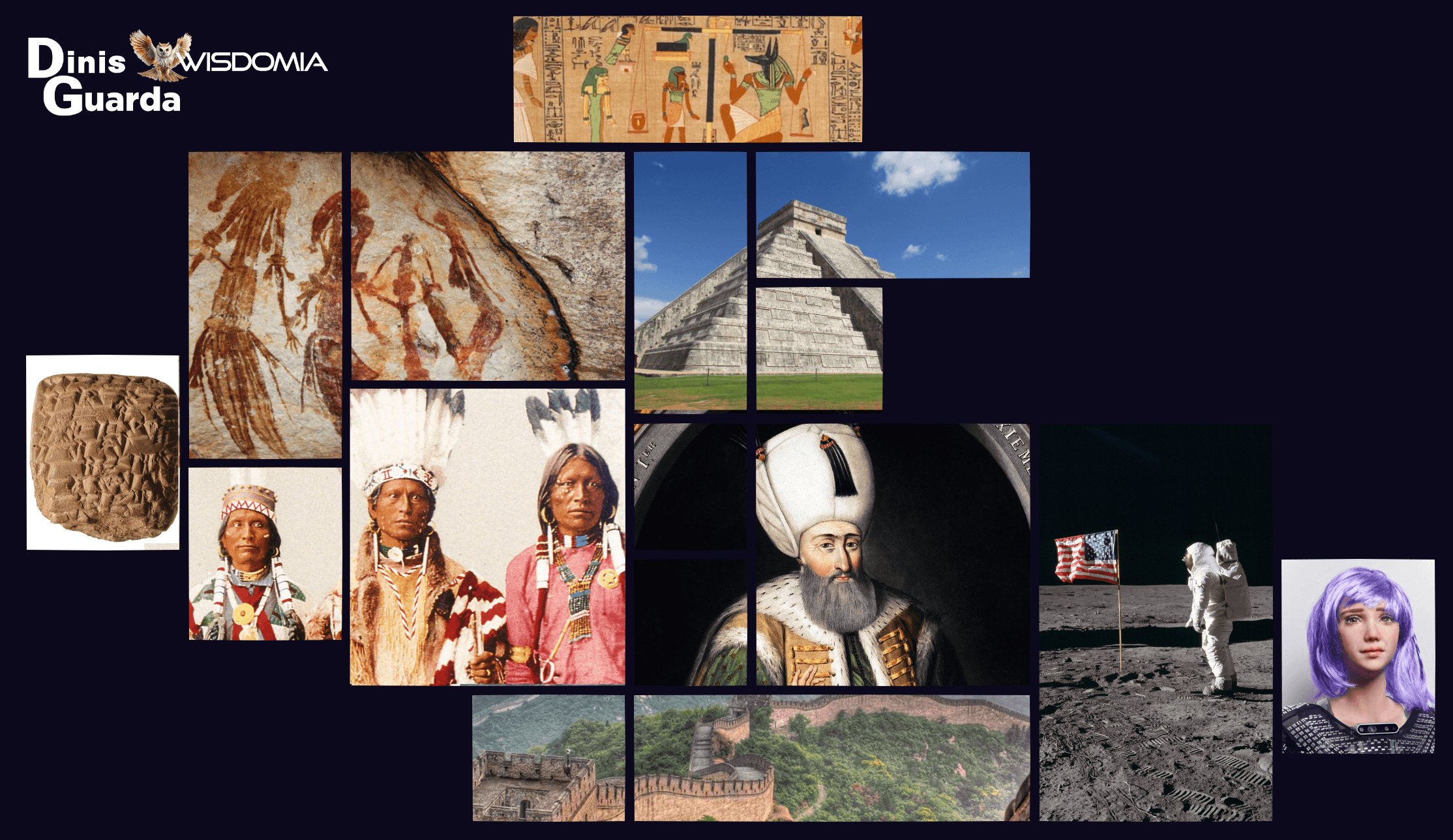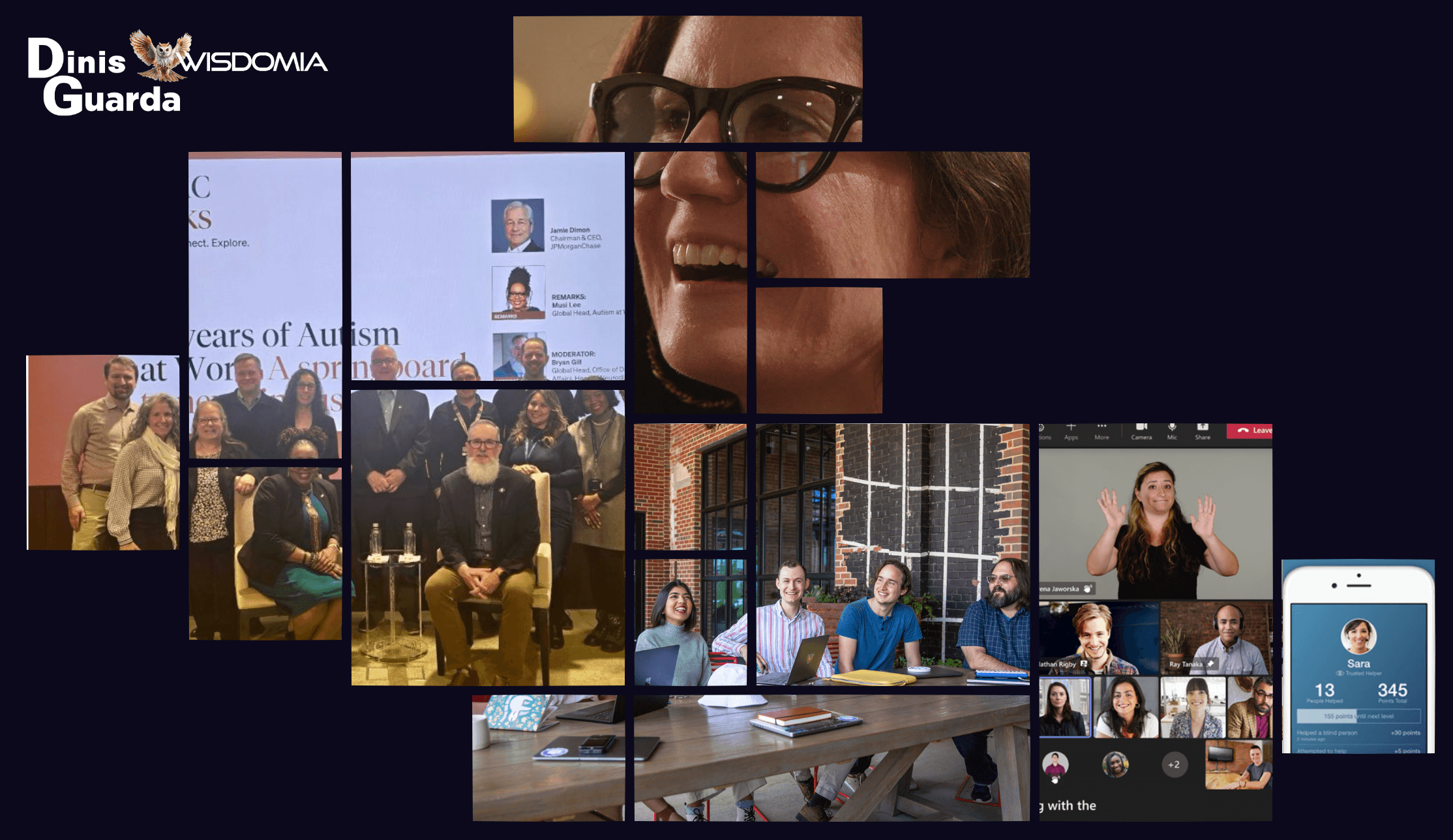7 rules of life: Einstein's Wisdom for a Life Well-Lived
Hind MoutaoikiIR&D Manager
Tue May 06 2025

Albert Einstein contemplated something perhaps even more profound: how to live a meaningful life. While history celebrates him as the revolutionary physicist who gave us E=mc² and bent our perception of spacetime itself, there existed another Einstein—a deeply thoughtful human being who navigated the turbulent waters of the 20th century with remarkable wisdom and compassion.
In the quiet moments between the grand revelations that reshaped our understanding of the cosmos, Albert Einstein contemplated something perhaps even more profound: how to live a meaningful life. While history celebrates him as the revolutionary physicist who gave us E=mc² and bent our perception of spacetime itself, there existed another Einstein—a deeply thoughtful human being who navigated the turbulent waters of the 20th century with remarkable wisdom and compassion.
When we seek guidance for our own lives, we often turn to self-help authors, spiritual leaders, or philosophical giants. Rarely do we consider that the same mind which unravelled the mysteries of the universe might also have solved the riddles of everyday existence. Yet Einstein's approach to living—much like his approach to physics—was built upon elegant simplicity, profound insight, and a touch of rebellious playfulness.
Here, we explore seven principles that guided Einstein's remarkable journey—principles that speak not merely to the intellect, but to the heart and soul of what it means to be fully human in a complex world.
Rule #1: Expend Your Efforts on the Things That Matter
Perhaps you've seen those iconic photographs: Einstein with his wild, untamed hair, worn clothing, and perpetually sockless feet. This wasn't mere eccentricity—it was a deliberate philosophy in action.
"Why should I memorise how far away the stars are when I can look it up in a book?" Einstein once remarked. This seemingly casual statement reveals a profound truth: our mental and emotional resources are precious and finite. Einstein understood that fussing over his appearance or conforming to social expectations would drain energy better spent contemplating the mysteries of light, space, and time.
In his later years, Einstein settled into wearing what amounted to a uniform—a simple grey suit with a leather jacket instead of the traditional sport coat. By eliminating decisions about trivial matters, he created space for the questions that truly fired his imagination.
How often do we exhaust ourselves on endless minutiae, losing sight of what genuinely matters in our lives? Perhaps we could all benefit from asking: What are the "socks" in our lives that we might comfortably discard? What mental energy might we reclaim by simplifying the nonessential?
Rule #2: Do Things You Love, Even If You're Terrible at Them
Despite his unquestionable genius in physics, Einstein was, by most accounts, a mediocre violinist. Yet throughout his life, he found immense joy in playing this instrument, often practising for hours each week. When asked about this seeming contradiction, he would smile and say, "I know that I cannot play, but I do it for myself."
Perhaps more revealing was Einstein's love of sailing—an activity at which he displayed remarkable ineptitude. He repeatedly capsized his boat, needed frequent rescuing, and once famously ran aground on a sandbar, waiting hours to be saved. His sailing adventures became legendary among locals at Long Island's Peconic Bay, where coastguards kept watchful eyes on the dishevelled genius in his boat aptly named "Tinef" (Yiddish for "worthless").
Yet sailing provided Einstein with something invaluable. As he wrote, "A cruise in the sea is an excellent opportunity for maximum calm and reflection on ideas from a different perspective." His wife Elsa noted, "There is no other place where my husband is so relaxed, sweet, serene, and detached from routine distractions; the ship carries him far away."
In today's achievement-obsessed culture, we've lost something precious: the willingness to be beginners, to be imperfect, to engage in activities simply for the joy they bring rather than for mastery or recognition. What would you do if excellence were not required? What instruments would you play, what canvases would you paint, what waters would you sail if the only measure that mattered was your delight in the doing?
For Einstein, these "worthless" activities were anything but—they were essential respites where his conscious mind could rest while his intuition worked in the background, often leading to his most profound insights.
Rule #3: Have a Puzzle Mindset
When faced with seemingly insurmountable challenges, Einstein recognised a fundamental choice in perspective that determines not just our emotional response, but our capacity to find solutions.
"In the middle of difficulty lies opportunity," he famously observed. This wasn't mere optimism; it was a radical reframing of how we approach problems. Einstein cultivated what modern psychologists might call a "puzzle mindset" rather than a "crisis mindset."
Consider how differently we approach puzzles versus crises. A puzzle engages our curiosity, invites playful experimentation, and presumes a solution exists. A crisis triggers our fight-or-flight response, narrows our thinking, and often leads to despair or panic.
When Einstein confronted the mysterious behaviour of light—behaviours that contradicted centuries of established physics—he didn't despair at the crisis in classical mechanics. Instead, he played with thought experiments, imagining himself riding alongside light beams or falling in elevators. This childlike wonder and playfulness led to the theories of relativity that transformed our understanding of the universe.
Rule #4: Think Deeply, Both Long and Hard, About Things That Truly Fascinate You
In 1946, a young person wrote to Einstein asking for life advice. The physicist's response reveals perhaps his most essential principle for a meaningful existence:
"I would advise you to devote yourself to things which interest you most and in which you may have the strongest aptitude for...It is easy to devise simple rules but they do not take one very far. The only way is to try out different paths. Only through experience can you find the thing that gives you the greatest inner contentment, even if it is not easy and requires fortitude and self-control."
How rarely in our modern world do we permit ourselves to follow our genuine fascinations! Instead, we pursue what others value, what society rewards, or what seems practical. But Einstein understood that authentic contribution comes only from authentic interest.
His greatest breakthroughs emerged not from external pressure but from questions that haunted him since childhood. At sixteen, he wondered: "What would it be like to ride alongside a beam of light?" This seemingly whimsical question, pursued with relentless curiosity over years, ultimately led to his special theory of relativity.
Einstein recognised that deep thinking requires both space and time—commodities increasingly scarce in our notification-saturated world. He often spoke of his best thinking happening during long walks, sailing excursions, or while playing violin—activities that allowed his conscious mind to step aside while his deeper intuition worked.
Perhaps we might ask ourselves: What questions genuinely fascinate me? What would I contemplate if external validation were irrelevant? And crucially, am I creating the conditions—the quiet, the solitude, the freedom from interruption—that deep thinking requires?
Rule #5: Don't Let Politics Fill You With Either Rage or Despair
For a man often portrayed as dwelling in abstract theoretical realms, Einstein was remarkably engaged with the turbulent politics of his time. He spoke against nuclear proliferation, advocated for civil rights, opposed McCarthyism, and fled Nazi Germany as Hitler rose to power. Yet he maintained a delicate balance between engagement and emotional preservation.
In correspondence with his cousin Lina Einstein, he offered wisdom that resonates powerfully in our polarised era: "About politics to be sure, I still get dutifully angry, but I do not bat my wings anymore, I only ruffle my feathers."
This distinction between "batting wings" and "ruffling feathers" is subtle but profound. Einstein remained morally engaged without allowing political turmoil to consume his inner peace or creative energy. He understood that while righteous anger has its place, it becomes destructive when it dominates our emotional landscape.
How many of us today feel perpetually exhausted by the endless cycle of outrage our media ecosystem cultivates? How many brilliant minds are diverted from their greatest potential contributions because they are caught in the addictive cycle of political anxiety and anger?
Einstein's approach offers an alternative: remain informed and engaged, take principled stands when necessary, but refuse to surrender your inner tranquility to the perpetual chaos of political life. As he wrote, "I have never belonged wholeheartedly to any country or state, to my circle of friends, or even to my own family...Such isolation is sometimes bitter, but I do not regret being cut off from the understanding and sympathy of other men. I lose something worth while by it, to be sure, but I am compensated for it in being rendered independent of the customs, opinions, and prejudices of others."
Rule #6: Blind Obedience to Authority Is the Greatest Enemy of the Truth
"Unthinking respect for authority is the greatest enemy of truth," Einstein declared in 1901, while still a young patent clerk formulating the ideas that would overturn Newton's centuries-old physics.
Throughout his life, Einstein remained deeply skeptical of hierarchical structures and conventional wisdom. He questioned not just scientific orthodoxy but also educational methods, governmental policies, and social norms. This wasn't mere rebelliousness—it was a principled commitment to independent thinking.
Yet Einstein's skepticism was balanced by humility. He understood that questioning authority doesn't mean reflexively rejecting expertise or evidence. Rather, it means evaluating claims based on their merits rather than their source.
In our era of deepening polarisation, many of us have abandoned critical thinking in favour of tribal alignment. We accept without question ideas from "our side" while reflexively rejecting those from perceived opponents. Einstein would have viewed this pattern with concern, recognising that truth rarely aligns perfectly with any ideology or authority.
"The important thing," Einstein wrote, "is not to stop questioning. Curiosity has its own reason for existing." This commitment to persistent inquiry—neither cynically dismissing all claims nor uncritically accepting them—offers a middle path through our polarised landscape.
What authorities do you accept without question? What ideas do you reject without examination? Einstein's example challenges us to cultivate both the courage to question and the humility to listen.
Rule #7: Science, Truth, and Education Are for Everyone, Not Just the Privileged Few
Despite his iconic status as perhaps the greatest scientist of modern times, Einstein maintained an unwavering commitment to accessibility and equality in education and knowledge.
"All religions, arts, and sciences are branches of the same tree," he wrote. "All these aspirations are directed toward ennobling man's life, lifting it from the sphere of mere physical existence and leading the individual towards freedom."
Einstein didn't merely philosophise about equality—he actively fought for it. Despite warnings about risking his scientific reputation, he spoke forcefully against American racism, declaring it "a disease of white people" and refusing to stay silent on moral matters. When Lincoln University, a historically Black college in Pennsylvania, invited him to speak and receive an honorary degree in 1946, Einstein accepted without hesitation. There, he delivered not a lecture on physics but a powerful address condemning racial segregation.
His FBI file, which eventually grew to over 1,400 pages, documented his unflinching support for civil rights even when such advocacy was deemed "un-American" by powerful figures like Senator Joseph McCarthy.
Einstein understood that knowledge confined to elite circles loses its transformative power. He worked tirelessly to make complex ideas accessible to ordinary people, writing popular books explaining relativity and participating in public discourse about science and society.
In our age of increasing inequality and knowledge stratification, Einstein's democratic vision of education and truth reminds us that wisdom belongs not to the privileged few but to all humanity. As he wrote, “The whole of science is nothing more than a refinement of everyday thinking.”
The Symphony of a Life Well-Lived
What emerges from these seven principles is not merely a collection of isolated rules but a coherent philosophy—a harmony of mind, heart, and action that guided one of humanity's most brilliant lights.
Einstein understood that a meaningful life requires both courage and humility: courage to question orthodoxy, pursue genuine fascination, and stand for justice; humility to acknowledge our limitations, embrace imperfection, and preserve mental energy for what truly matters.
Perhaps most striking about Einstein's wisdom is how it transcends his scientific era. While his physics transformed our understanding of the universe, his principles for living speak to timeless human challenges: finding purpose, maintaining balance, pursuing truth, and creating meaning in an often chaotic world.
previous
What is the Smallest Thing in the World? Humanity's Quest for the Universe's Tiniest Building Blocks
next
Understanding Tortoise Lifespans: How Long Do Tortoises Live in the Wild and Captivity?
Share this
Hind MoutaoikiI
R&D Manager
Hind is a Data Scientist and Computer Science graduate with a passion for research, development, and interdisciplinary exploration. She publishes on diverse subjects including philosophy, fine arts, mental health, and emerging technologies. Her work bridges data-driven insights with humanistic inquiry, illuminating the evolving relationships between art, culture, science, and innovation.
More Articles

The Hard Truths: Three Critical Barriers Standing Between AI Innovation and Universal Accessibility

Elder Voices of the Millennium: Adyashanti

The Rules of the Game: How Global Policy Is Shaping AI Accessibility from Rights to Reality

The Rise and Fall of Civilisations: A Complete History

When Profit Meets Purpose: How Microsoft and Corporate Leaders Are Proving the Business Case for Accessibility





